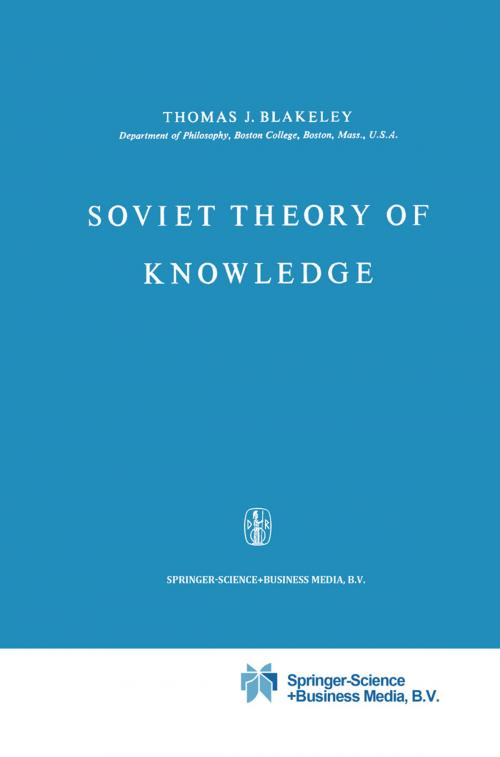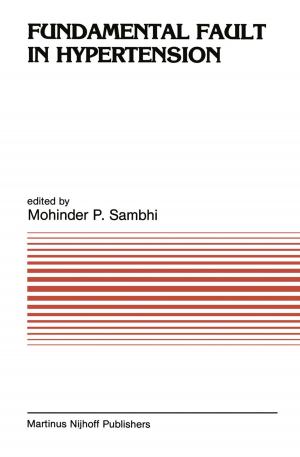| Author: | J.E. Blakeley | ISBN: | 9789401730365 |
| Publisher: | Springer Netherlands | Publication: | March 9, 2013 |
| Imprint: | Springer | Language: | English |
| Author: | J.E. Blakeley |
| ISBN: | 9789401730365 |
| Publisher: | Springer Netherlands |
| Publication: | March 9, 2013 |
| Imprint: | Springer |
| Language: | English |
This book offers a complete survey of contemporary Soviet theory of knowledge. It is by no means meant to replace De Vries' excellent treatise on the same subject. Since De Vries depended mainly on the 'classics of Marxism' and the few contemporary Soviet works which were available in German translation, his account is at best an in troduction to the contemporary period. In a sense this book is com plementary to his: he presents the doctrines of the classics and criticizes them, this book recounts what came after and what is going on now. Epistemology and theory of knowledge are taken here as equivalent terms, representing the Soviet gnose%gija and teorija poznanija. No attempt to justify the existence of such a philosophical discipline will be attempted here. Even outside of this question of the legitimacy of epistemo logy, it is not easy to delimit the domain of its purvey. We have, therefore, taken it in a wider rather than narrow sense. This means that some ques tions of logic and psychology have been taken up - to the extent that they overlap with the field of philosophical consideration of knowledge.
This book offers a complete survey of contemporary Soviet theory of knowledge. It is by no means meant to replace De Vries' excellent treatise on the same subject. Since De Vries depended mainly on the 'classics of Marxism' and the few contemporary Soviet works which were available in German translation, his account is at best an in troduction to the contemporary period. In a sense this book is com plementary to his: he presents the doctrines of the classics and criticizes them, this book recounts what came after and what is going on now. Epistemology and theory of knowledge are taken here as equivalent terms, representing the Soviet gnose%gija and teorija poznanija. No attempt to justify the existence of such a philosophical discipline will be attempted here. Even outside of this question of the legitimacy of epistemo logy, it is not easy to delimit the domain of its purvey. We have, therefore, taken it in a wider rather than narrow sense. This means that some ques tions of logic and psychology have been taken up - to the extent that they overlap with the field of philosophical consideration of knowledge.















